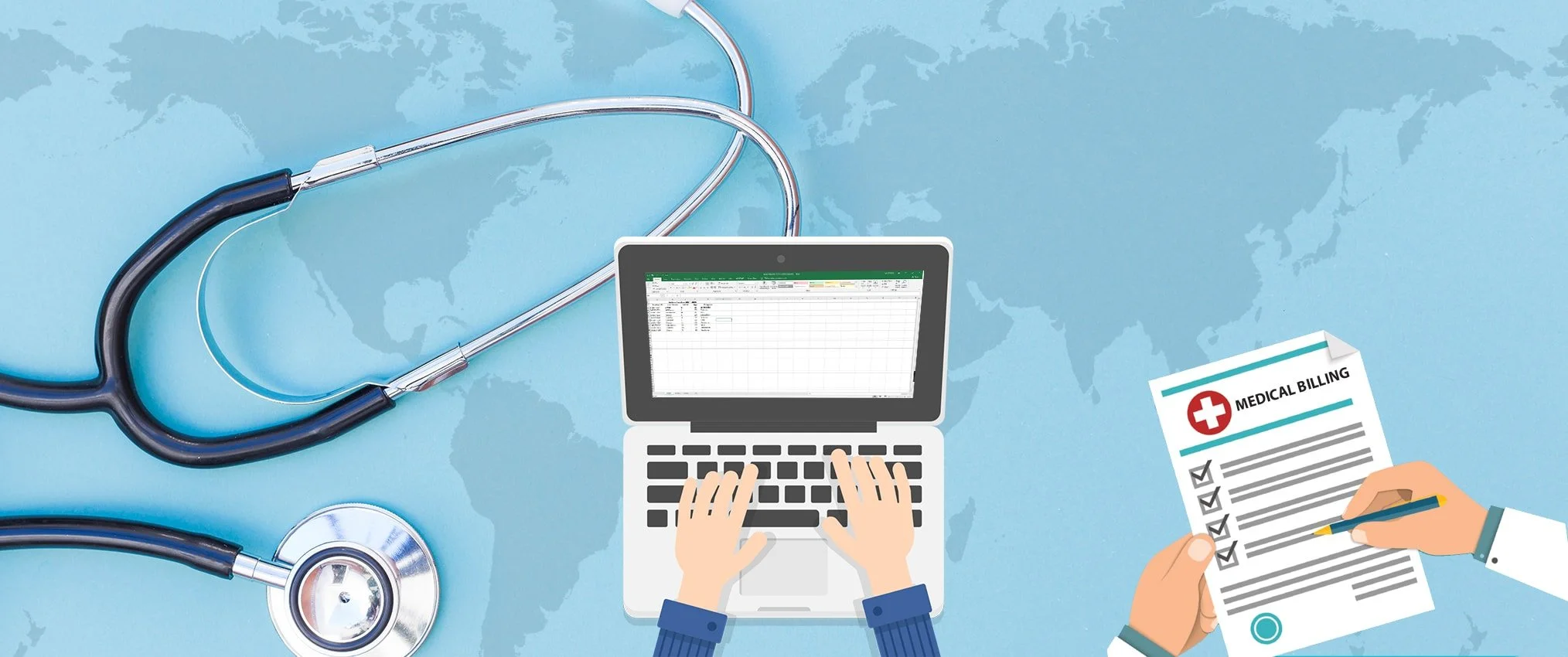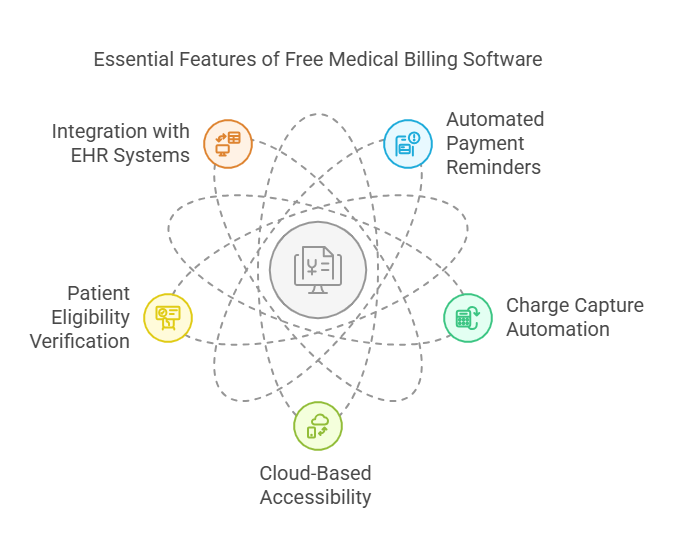Free Medical Billing Software: A 2025 Guide for Healthcare Providers
Managing medical billing can often be complex and time-consuming for healthcare providers. However, free medical billing software offers a cost-effective solution to streamline billing operations and enhance financial management. This guide explores the top free medical billing software options available in 2025, their features, benefits, and how healthcare practices can choose the best solution for their needs.
What is Medical Billing Software?
AMBCI offers solutions that complement medical billing software—a practice management tool designed to automate and manage the billing process in healthcare settings. It handles tasks like claims submission, patient invoicing, payment tracking, and revenue cycle management. With the increasing demand for efficiency and accuracy in healthcare administration, medical billing software helps healthcare providers minimize errors, reduce claim denials, and improve cash flow. Obtaining a medical billing and coding certification through organizations like AMBCI can further enhance proficiency and ensure professionals are equipped to navigate complex billing systems effectively.
This software is crucial for reducing administrative workload, enabling healthcare professionals to focus more on patient care while ensuring smooth financial operations.
Benefits of Free Medical Billing Software
Free medical billing software is particularly beneficial for small healthcare practices operating on tight budgets. These solutions offer essential billing features without the high costs of premium software. Key benefits include:
Faster billing and payment processing
Automated claims submission and reminders
Enhanced data accuracy and reduced errors
Cloud-based access for remote management
Integration with Electronic Health Record (EHR) systems
Compliance with healthcare regulations like HIPAA
Key Features of Free Medical Billing Software
Automated Payment Reminders
Free medical billing software sends automatic reminders to patients for due payments, reducing the chance of late payments.
Charge Capture Automation
Automating charge capture helps minimize manual errors and speeds up the billing cycle.
Cloud-Based Accessibility
Healthcare providers can access billing systems from any location, enhancing flexibility and remote working capabilities.
Patient Eligibility Verification
Integrated tools allow real-time patient eligibility checks to minimize claim denials.
Integration with EHR Systems
Free billing software often integrates seamlessly with EHR systems for improved data accuracy and streamlined operations.
How to Choose the Right Medical Billing Software
When selecting medical billing software, healthcare providers should consider:
The size and type of their practice
Essential features like electronic claims, payment tracking, and patient eligibility verification
User-friendliness of the interface
Quality of customer support
Integration capabilities with existing EHR systems
Compliance with HIPAA and other security standards
Top Free Medical Billing Software Solutions in 2025
Carepatron
Carepatron offers customizable billing features suited for various healthcare services. It automates tasks like invoicing and claims management, improving operational efficiency.
billrMD
billrMD is a HIPAA-compliant platform offering scheduling, patient record management, and real-time claim submissions. It supports labs and independent diagnostic facilities with quick claim processing.
Ebill Cloud by Cortex EDI
Ebill Cloud provides a user-friendly interface for healthcare providers. It simplifies patient eligibility verification and streamlines the overall billing process with excellent customer support.
Enhancing Efficiency with Free Medical Billing Software
Automating routine billing tasks using medical billing software enables healthcare practices to:
Improve cash flow by ensuring faster payments
Reduce manual errors and administrative workload
Streamline the revenue cycle
Verify patient eligibility quickly
Increase operational efficiency through EHR integration
Ensuring Compliance and Security
Data security and compliance are crucial for any medical billing system. Modern free medical billing software ensures:
HIPAA compliance for patient data protection
Encryption of sensitive information
Secure access controls
Regular software updates and security audits
Multi-factor authentication for user accounts
How to Get Started with Free Medical Billing Software
Quick Sign-Up
Most free medical billing software platforms offer easy online registration with no upfront fees.
Customization Options
These systems allow customization of billing templates, service rates, and other parameters to suit the specific needs of a practice.
Ongoing Training and Support
Continuous training resources and customer support ensure healthcare providers can efficiently use the software and stay updated on new features.
Lesser-Known Facts About Medical Billing Software
In 2025, advancements in healthcare technology continue to transform the way providers manage billing and finances. Many free medical billing software platforms now offer built-in telehealth billing features, allowing seamless integration with virtual consultations and improving reimbursement accuracy for remote services. HelixBeat notes this shift as a major industry trend.
AI-driven predictive analytics is another innovation being integrated into billing systems. This technology helps healthcare practices forecast payment trends, optimize revenue cycle management, and reduce claim denials. As Appinventiv explains, AI is revolutionizing the way medical billing is handled by providing real-time insights.
Meanwhile, blockchain technology is making inroads into healthcare billing by offering secure and transparent patient billing records. This ensures data integrity and reduces the risk of tampering or fraud, according to Outsource Strategies International.
In terms of administrative ease, some free billing platforms include automated reporting tools that assist with tax filing, streamlining the end-of-year financial reporting process. Invoicera highlights how automated solutions save time and reduce human error.
Security continues to be a major focus, with many free software options now including advanced fraud detection features. These tools use machine learning to identify unusual billing patterns and prevent fraudulent claims. HealthEdge emphasizes the importance of these AI-powered defenses in modern billing environments.
Finally, there's a growing emphasis on eco-friendly billing solutions, such as paperless invoicing, which not only cut down on costs but also support environmentally conscious practices. As InvoiceOnline notes, this trend is gaining traction among providers aiming to reduce their carbon footprint while improving operational efficiency.
Final Thoughts
Free medical billing software is transforming the way healthcare practices manage their billing operations in 2025. With features like automated payment processing, patient eligibility checks, and EHR integration, these tools allow providers to focus on delivering quality patient care while maintaining financial stability. Choosing the right software based on your practice's specific needs can lead to greater efficiency, accuracy, and improved cash flow.
Start exploring the best free medical billing software solutions today and elevate your practice's billing management!
Frequently Asked Questions (FAQs)
-
Free medical billing software offers features like automated payment reminders, charge capture, cloud-based access, HIPAA-compliant security, and patient eligibility verification.
-
Yes, billrMD is designed to serve medical practices, billing organizations, labs, and independent diagnostic facilities with comprehensive billing capabilities.
-
It improves operational efficiency, ensures faster payments, reduces administrative burdens, and allows small practices to focus more on patient care.
-
EHR integration ensures better data accuracy, reduces manual errors, and streamlines the overall billing and patient record management processes.
-
Security measures include data encryption, HIPAA compliance, secure access controls, multi-factor authentication, and regular software updates to protect sensitive patient information.





